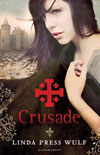Kirkus Reviews Special:
SPOTLIGHT ON FICTION 2006
35 HOT DEBUTS
AN AUTHOR DELIVERS A FIRST NOVEL ONLY ONCE of course, and with that book launches a career. Maybe that’s the reason, along with the consistent craving for things new, that so many readers have such optimistic curiosity about fiction debuts: Here’s a voice you haven’t ever heard, telling a story you likely haven’t heard (at least, not quite this way) from a source who—if all goes well—will be able to tell you more stories for years, decades, to come. Those factors certainly figure in our enthusiasm for this particular Kirkus Special, which is itself a debut. While Kirkus Reviews has been reviewing first fiction for nearly three-quarters of a century, the magazine has never before culled, from among a season’s most promising debuts, a group to highlight. The 35 titles selected demonstrate individually and collectively the undiminished power of fiction and storytelling; show off the fruits of the labors of dozens of talented writers, editors and agents; and suggest that these 35 voices will be welcome additions to the lives of readers well into the future.
-The Editors
Linda Press Wulf starts The Night of the Burning, her haunting work of historical fiction, based on the experiences of her mother-in-law, with an ominous note: “I knew I would never laugh again,” says Devorah, a child who has just lost her parents to illness and her Polish shtetl to rampaging Polish villagers spurred on by Cossacks. Then comes an angel of mercy, a South African philanthropist who arrives in Poland to gather 200 Jewish orphans.
Told in alternating, before-and-after chapters that pivot on the night of the burning – the pogrom that sets fire to her neighborhood and kills all but Devorah and her sister—Wulf skillfully transports readers between life in Devorah’s village before the pogrom, her days in orphanages and her reluctant life with her adoptive parents.
Devorah’s loss, confusion and acute pain are exquisitely drawn by Wulf. “She remains aloof as a matter of principle,” says Wulf, anxious to keep the memory of her parents alive.
The stories of Domachevo, Devorah’s home village, will not be forgotten, thanks to Wulf’s inspired telling. “The children I was writing about endured and emerged from terrible trauma,” she says. “I wondered how they could bear it, whether they comforted themselves with moments of happiness: a new friend, the antics of a small animal, the sun on one’s hair.” Devorah does, and in her recovery is the miracle of laughter amidst the ruins.
KIRKUS REVIEWS SPECIAL EDITION, May 1, 2006 “Spotlight on Fiction”
The Night of the Burning: Devorah’s Story
by Linda Press Wulf
Farrar, Straus & Giroux
www.kirkusreviews.com

